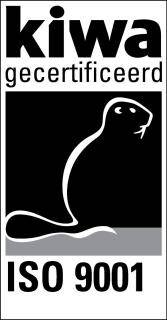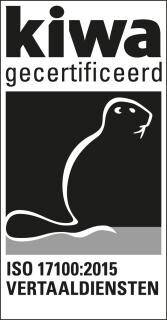Literary translations
YOUR PROFESSIONAL LITERATURE IN ANY LANGUAGE
Literary translations
Nothing is more annoying than reading incorrectly translated literature. While reading, you get irritated by the small mistakes, which doesn’t benefit your confidence in the literature. If you have written professional literature yourself, you obviously don’t want such errors in your translations. A high-quality translation of literature is of great importance.
What is special about translating literature is the handling of large volumes of text and working within deadlines. When it concerns hundreds of pages to be completed in a certain amount of time, discipline is a must. Because a book translation often takes weeks or months, you can count not only on our translators but also on our skilled project managers. They will keep you updated on the situation, answer your questions and keep an eye on the quality control process.
Request a quote
We have already translated several books in different language combinations and are familiar with long-term translation projects. Add to this the fact that our translators have an affinity with our fields of agricultural technology, livestock breeding, food, agriculture and horticulture and, of course, with language.
Dealing with time pressure
The translation of literature almost always involves extensive projects that have to be translated under time pressure. After all, publishers want the translated book to be available as soon as possible after the publication of the original work. Literary translators must therefore be able to work quickly, without compromising quality. Also, the translator must be able - under time pressure - to convert a large amount of text into a translation of a quality comparable to the original book.
Translating literature is not easy. It requires a broad general knowledge, an enormous vocabulary and the ability to articulate complex facts comprehensibly in another language.
How literary translations are made
Literary translations follow a standard process:
- Reading: The translator must of course know the book. While reading, he or she immerses him or herself in the assignment and gains useful information about the writing style, the details and the atmosphere of the book.
- Research: Once he knows the book well, the translator first does some research before starting on the translation. All details of the book (for instance, terminology and technique) are carefully analysed.
- • Contextualising: The book must be placed in its proper context. The essence of the source text must still be expressed in the translated version.
- Translating: Translation involves flawlessly translating the knowledge acquired through reading and research into the target language. The style of the source text must remain visible.
- Correcting: As with any translation, the complete book must be revised at the end. However, one correction is not enough. Several are needed before the translated book can be sent back to the client for possible feedback.
Literary translations by AgroLingua
Literature is translated with the utmost care at AgroLingua. The process involves the following steps:
- The texts are delivered to us;
- The most suitable translator or translators are assigned to your project;
- Our skilled translators get to work for you;
- The texts are translated;
- Once the translation is finished, it’s reviewed by a second translator;
- The translation is sent to you for any feedback.
Find out the advantages of AgroLingua for yourself
Would you like more information about AgroLingua’s services? We’d be delighted to explain more in person. Please don’t hesitate to contact us!







